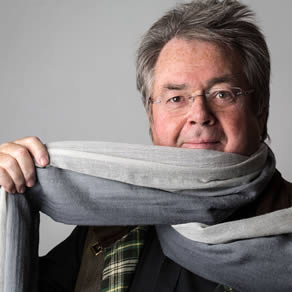Enjott Schneider
Enjott Schneider was born in Weil am Rhein (Germany) in 1950. He studied music and musicology at Freiburg im Breisgau and was awarded his PhD in 1977. From 1979 to 2012 he taught at the University of Music and Performing Arts in Munich (first as professor of music theory, then – from 1996 on - of composing for films). He has published books dealing with time and rhythm and with composing for films. He himself has written more than 1000 soundtracks, for major films like "Stalingrad", "23", "Schlafes Bruder" "Armageddon", "Stauffenberg" or TV Productions ranging from soap operas to epic TV movies. Among his numerous compositions for the stage and the genres of chamber, orchestral and chamber music, special mention must be made of the seven operas, for example "The Salome-Principle" (Gelsenkirchen 2000), "Gatekeeper Thiel" (Görlitz 2004) and "Fürst Pückler – I'm a child of fantasy" (Görlitz 2006), also three orchestra symphonies "Bell- Symphony: A Song to life" on texts from the Buchenwald concentration camp (Cathedral Steps Festival Erfurt 1999) and "Sisyphos" (Herkules Hall Munich 2001), "Chinese Seasons" (Leoben 2008).
Schneider has received many accolades for his scores, the Bavarian Film Prize, the German Film Prize and the fipa d'or among them. A special interest of his is composing organ music (12 large organ symphonies, 2 organ concertos) and sacred music (4 large oratorios, works for choirs). His music reflects a wide range of tendencies from avantgarde to film, and seeks to tap the creative potential of contrasting streams within a postmodern ethos.
Wildner Records released one production featuring compositions by Enjott Schneider: Talking Trees (2009).
